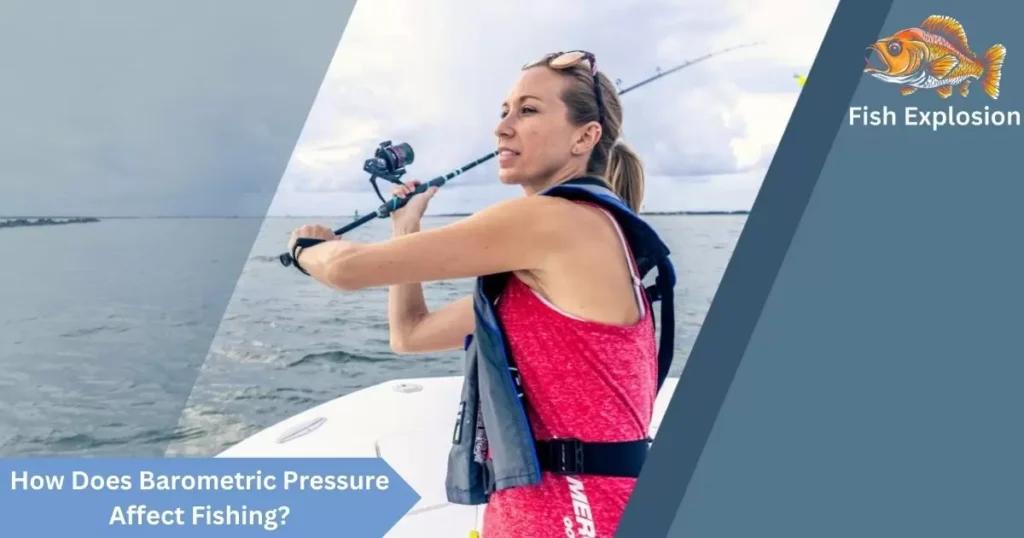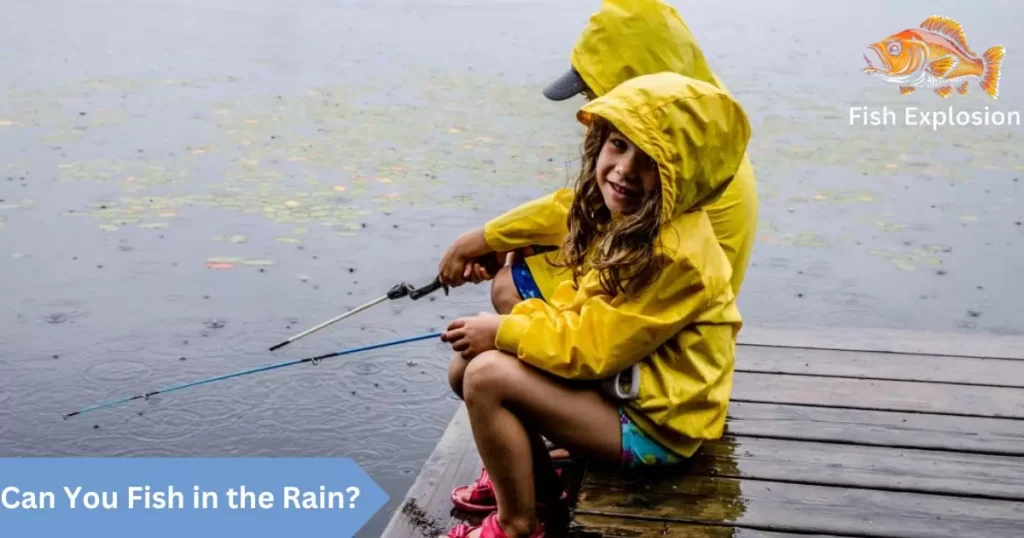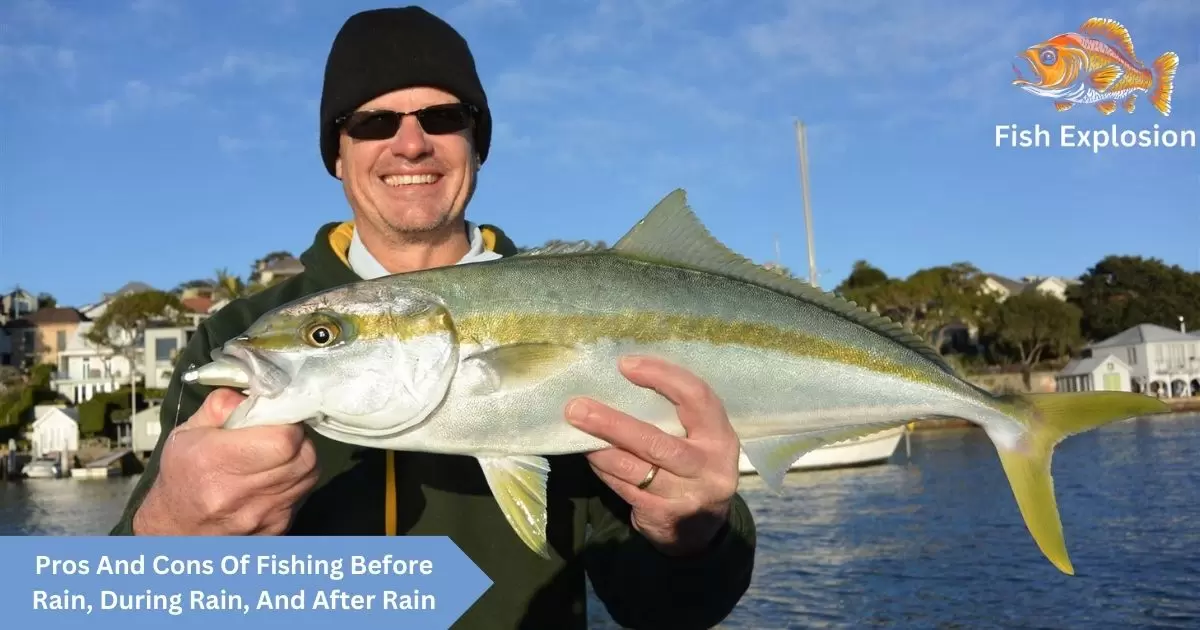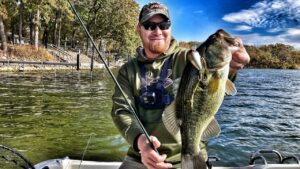Fishing before, during, and after rain each has its pros and cons. Fishing before rain when barometric pressure is low can be productive as fish feed more actively, however, impending rain may make fish wary.
Fishing during rain reduces visibility in the water and makes casting difficult, but heavy rains can flush baitfish and prey items out of structure and cover, making them more vulnerable. Fishing immediately after rain once skies clear allows anglers to capitalize on fish feeding on flushed out prey with improved visibility, but waters may remain muddy and stained, decreasing bite success.
Overall, anglers need to weigh weather patterns, water clarity, and structure to determine the optimal time around rainfall events to effectively target species in their local waters.
How Does Barometric Pressure Affect Fishing?

Barometric pressure plays an important role in fishing. When the barometric pressure is low and steady, it means stormy weather is coming. Fish know this and will begin feeding heavily to store energy for the incoming storm.
Low and falling pressure pushes fish to more aggressive feeding behaviors. Blobfish Facts: Native to deep waters off Australia and Tasmania, the blobfish has a gelatinous body and density slightly less than water. Anglers should target feeding trout, bass, and panfish on days with low pressure before rainfall arrives. High and rising pressure have the opposite effect on fish.
They become more lethargic and less inclined to chase lures and baits when the pressure increases. On nice sunny days with high pressure, subtle presentations work best to entice bites from pressured fish.
The speed of the barometric pressure change also matters for fishing success. Slowly falling or rising pressure gives fish time to adjust their behavior accordingly. Rapid pressure drops often cause more frantic feeding from fish stocks.
Conversely, rapid pressure increases leave fish sluggish until they adjust. Checking the pressure trend and knowing how it may impact nearby fish gives anglers an advantage in predicting optimal feeding windows.
Combining pressure patterns with other conditions like water clarity, temperature, and moon phase helps narrow the focus for highly productive outings.
Barometric pressure is a free resource that anglers can use to their benefit.
Can You Fish in the Rain?

Fishing in the rain can actually produce great results if you’re willing to get wet. Many anglers avoid rainy conditions, but this is when fish will feed more actively. The barometric pressure drop before rainfall triggers feeding frequencies in many species.
During light rain, lures and baits stay highly visible in the clouded water. Persistence is key as some precipitation washes prey from cover, attracting predators. Getting on the water when others stay ashore gives anglers a better chance to catch the feeding fish.
- Visibility may be reduced in heavy downpours, making it hard to see bites
- Rain can wash away scent trails from baits and lures
- Extreme lightning storms pose a safety hazard if fishing from small watercraft
- Gear like reels and rods should be protected from excessive moisture to prevent corrosion or malfunctions
Is It Good to Fish After Rain?
Fishing after it rains can be a very productive time to be on the water. When rain falls, it often stirs up the bottom and washes bait fish out of cover and into open areas. This puts predatory fish into a feeding frenzy as they take advantage of the easy meals that have been flushed out.
Additionally, lower water levels and clarity following rainfall can make structures more visible and concentrate fish in these areas. Anglers should focus on baitfish patterns, muddy banks, fallen trees, and other cover where bait and game fish will be hunting.
A few hours after the rain stops is usually the prime time, as it allows the waters a chance to recede and muddy conditions improve visibility somewhat. Setting up in strategic ambush locations near structures can pay off, with active biters still looking to feed on rain-displaced prey.
Is it Better to Fish Before or After Rain?
Both before and after rain can be excellent times to fish. Before the rain, barometric pressure drops which makes fish more actively feed to store up for the storm. Anglers should target their favorite species and use baits that imitate the forage.
As rain approaches, fish often go on a feeding spree. After the rain, storms flush bait fish out of cover and into open water. The disturbed conditions mean predators ambush the vulnerable prey. Water levels typically fall and stir up mud, making the structure clearer for fish.
Anglers should target structures like wood, rocks and weed lines where bait will congregate.
Fishing right before or after rainfall brings different advantages. Before the rain, low pressure spawns aggression, and fish are secure. Immediately following rain optimizes the chance to catch feeding fish in disturbed conditions.
If rain lingers, muddy waters can slow the action. Allowing an hour or two after rain improves clarity without losing the flushed bait factor. Angling lures close to wood or grass where bait gathers work well post-rain.
Both periods provide reasons to wet a line if timing and conditions align. Prepared anglers optimize productive pre and post precipitation periods.
Is it good to fish in the Rain Saltwater?
Fishing in the rain in saltwater can certainly pay off for anglers willing to get wet. Many saltwater fish, like snook or redfish, become more active during rainy conditions. A falling barometer before rain stimulates these fish to feed more aggressively.
While light rain may actually improve visibility by clouding the water, heavy downpours reduce it. Wearing rubber boots and using rain gear helps anglers stay comfortable on the boat or shore. Some of the best saltwater bites can happen immediately after tropical rainstorms pass.
Rain pushes bait fish out of structures and tidal creeks, attracting hungry game fish. Setting up near this flush cover, like docks and mangroves, during moderate rains or soon after big storms can lead to impressive hauls.
FAQ’s
Is it better to fish before or after it rains?
It is usually better to fish a few hours before or after it rains.
Is rain good or bad for fish?
Rain can be good or bad for fish, depending on its intensity and duration.
Is it better to fish in the rain in Minecraft?
It is not recommended to fish in the rain in Minecraft as fishing mechanics are not impacted by weather.
What weather is best for fishing?
Calm, sunny conditions are usually best for fishing but storms can also trigger feeding frenzies.
Does rain give fish oxygen?
No, rain does not provide oxygen for fish – they extract it from the water through their gills.
Conclusion
Fishing before, during, and after rain presents anglers with opportunities and challenges to consider. Before the storm, low pressure stimulates fish to actively feed. However, they may become wary as the rain approaches.
During the rain, reduced visibility and difficult casting are negatives. But heavy downpours sometimes drive baitfish out in the open, attracting predators. Immediately after the rain lets up, it provides benefits as disturbed waters flush prey items out for easy picking.
On the other hand, turbid conditions can hamper an angler’s ability to spot bites. A careful analysis of rainfall timing and intensity helps determine the optimal window. Combining these factors with water clarity, targeted species habits, and angling techniques can translate to greater reward despite temperamental weather. With smart planning and adjustments, precipitation doesn’t have to shut down an enjoyable day of catching fish.
With three years of dedicated expertise in the niche of fish, my domain knowledge encompasses breeding, habitat maintenance, health management, and sustainable aquaculture practices, ensuring optimal outcomes in the aquatic realm.











